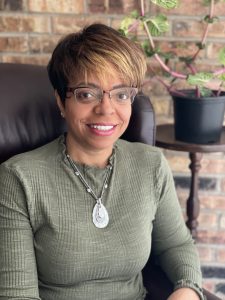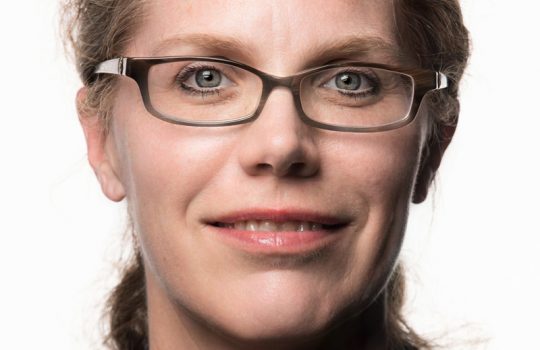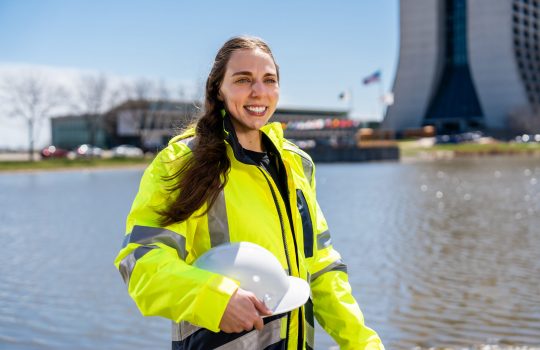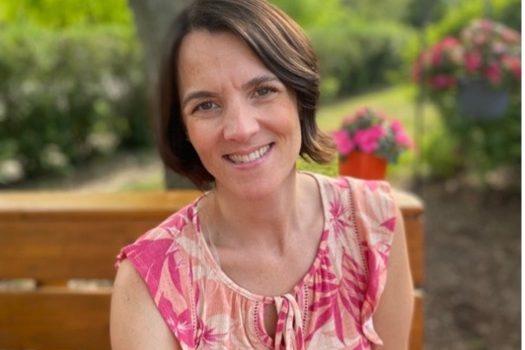How long have you been at the U.S. Department of Energy’s Fermi National Accelerator Laboratory?
I have been with Fermilab for almost seven years. I’m still considered a newbie in the Fermilab world. I came to Fermilab from another non-profit organization. In finance and accounting, I am specifically the Fermi Research Alliance accounting manager and also currently adding sponsored programs to the mix. FRA manages Fermilab for the Department of Energy. I work on all financial aspects of FRA, the more salient areas being financial statements, reports for DOE, tax returns, budgets, reports for the board of directors and the recent addition of sponsored programs.
How did you get into accounting?
I come from a family of CPAs, so I guess it was kind of inevitable that I would end up being a CPA, working in finance and accounting. I’ve always been a math person, and math transitions well into finance and accounting. Accounting crosses all industries, and that’s the field I have been in since I graduated college.
My family emigrated from Jamaica for more opportunities when I was in my teens. I now have two college-aged daughters who are pursuing degrees that would not have necessarily been available to them there. So it warms my heart to see them pursuing avenues that were not on my radar when I was young. It means it’s the end of the CPA generation in my family, but I’m happy they can pursue what they enjoy. I hope that feeling continues for them throughout their careers, as it does for me.
I originally started out in public accounting, then transitioned to corporate accounting, and then stepped into non-profit. I do like the different types of non-profit organizations that are out there. Fermilab is considered one of the epitomes of a non-profit organization, so I was very excited to come on board here.
What does you work consist of?
For example, this week, in terms of projects, I met the deliverable for one of DOE’s annual reports earlier this week. Now I have to switch gears and start working on the two IRS tax returns that are due. Specifically, one of them literally takes months because of the input required, not only from me, but from other areas of the lab. So, although I’ll be working on those two tax returns, I also have to work on my regular, day-to-day responsibilities as they come up.
What is the most challenging part of your work?
Sometimes the challenge is that what may be a high priority for you or for me might not be a high priority for someone else — and rightfully so because they have their own responsibilities and priorities. So, at times, the challenge is working with individuals so that we can come to a common place on the timing. I have to say, most often than not, it works out well because there are really good people at Fermilab, and as you know, people make the difference in your job.
Who do you interact with the most?
I interact with a variety of people including co-workers, University of Chicago, URA, DOE representatives and board members. I don’t interact as much as I’d like to with the actual scientists and research people. But that’s OK because I know I’m here supporting them so that they don’t have to worry too much about the financial areas, which means they can concentrate on the success of their research and projects.
Do you get lots of pushback about funding?
That’s always a conversation — and that’s not different from any other company or organization out there. It’s rare that you have a company or organization that has money to blow or can spend on anything they want. So yes, there are conversations about funding, but it’s not uncommon for any type of industry to have that kind of concern.
What do you like to do in your spare time?
I like to ride my bike, and I like to travel, although, as we all know, that’s been curtailed to some degree. But I have high hopes for this spring and summer. I also like to watch tennis and listen to music, of course. Love going to live music; that’s always fun.
Which tennis tournament would you head to first?
I would pick Wimbledon because literally I’ve been trying for two years to get to Wimbledon — hotel booked, flight, everything. Last year and in 2020, I had to cancel because of COVID related issues. So I’m determined one day to do that. But I’m not snubbing my nose at any of the other majors. I would go to the Australian Open in a heartbeat or the French Open, and I’ve been to the U.S. Open a number of times.
What type of music do you love?
I’d say that I pretty much like most types of music. These days, I’m leaning more toward jazz, but I could switch to reggae in a matter of seconds. I went to a jazz club, called Winter’s, in Chicago a couple months ago. It was a quintet with saxophone. They were from the South, and I thoroughly enjoyed that; they were really good.
What’s a part of your routine you cherish?
Every morning, whether I’m at work or at home, I have to have my two large cups of hot coffee. I don’t guzzle them — they get to room temperature — so then I end up with coffee that’s not hot. Co-workers are used to seeing me go to the microwave to heat up my coffee in the mornings. I’ve been told I am a slow drinker. But no, I like to think that I savour my coffee.
Fermi National Accelerator Laboratory is supported by the Office of Science of the U.S. Department of Energy. The Office of Science is the single largest supporter of basic research in the physical sciences in the United States and is working to address some of the most pressing challenges of our time. For more information, please visit science.energy.gov.




